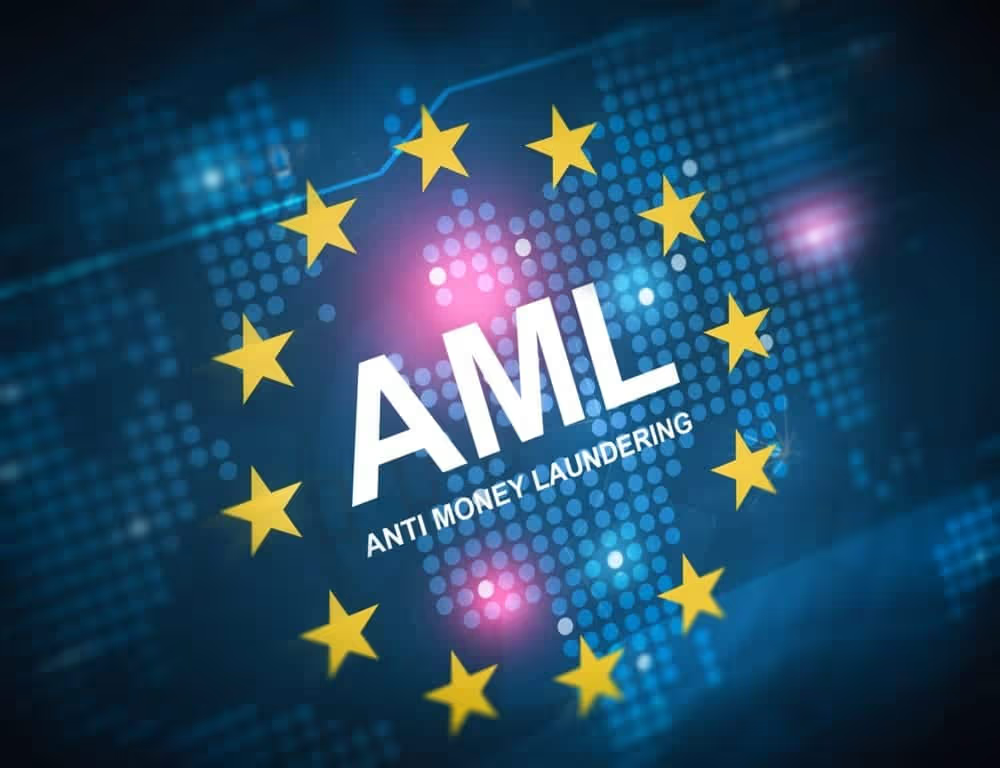
AML Regulations in the European Union
The European Union has several AML and KYC regulations in place to prevent money laundering and terrorism financing within its financial systems. This is an overview of existing regulations in the EU and in its member states.
What are AML Regulations?
AML regulations are in place to prevent terrorism financing and money laundering. The Financial Action Task Force, or FATF, is a global organization that oversees these regulations and requires know your customer procedures to be implemented anytime a new business relationship is established.
The KYC process involves collecting important information about a potential customer to verify their identity and determine the risk associated with doing business with them. The information collected includes their name, birthdate, address, and proof of this documentation depending on the type of account being opened.
Sanctions list and PEP screenings must also be performed to comply with AML regulations. Sanctions list screening requires businesses to make sure that an individual does not appear on a watchlist such as the one maintained by OFAC, which lists known terrorists or traffickers.
A PEP screening identified a politically exposed person, which means they are involved in government or political affairs. If a potential customer is a PEP, the business must perform additional due diligence to ensure that they comply.
AML Regulations in the EU
The European Union has recently adopted an action plan to enhance policies surrounding AML and CTF regulations. This action plan will allow them to adapt the existing framework to address new threats and vulnerabilities that the EU is currently facing while allowing it to adapt in the future.
The goal of AML regulations in the EU is to end illegal activities in the financial system and prevent dirty money from being processed through them. They also hope to play a role in shaping international standards to improve global AML efforts.
Through this action plan, the European Banking Authority (EBA) will establish an EU-wide database for AML and will allow them to perform risk assessments and investigations. It will also establish the EFECC – the European Financial and Economic Crime Centre – that will support member states in carrying out investigations alongside Europol.
Similarly, the action plan aims to establish a supervisory organization at the EU-level that will ensure that AML and KYC requirements and applications are consistent across all member states. This means that regardless of which borders within the EU the money crosses, the laws will be standardized and consistently applied.
AML Regulations by Country
While the European Union’s new action plan seeks to unify AML regulations across member states, many of the individual countries have their own regulatory agencies in place to prevent money laundering, fraud, and terrorist financing.
France
In France, the primary financial regulator is the Autorité des Marchés Financiers, or the AMF. They are responsible for managing and enforcing AML regulations, which means not only can they conduct investigations and issue penalties, but they can also enact new laws as needed.
As part of the EU, France is a member of the FATF and implements anti-money laundering directives in line with the other member states – including complying with the new EU action plan. France requires AML and KYC processes to be in place for all financial institutions, and appropriate due diligence must be used when onboarding a new customer.
Any individual convicted of money laundering can be sentenced to five years of prison and a fine of up to €375,000 or half of the amount laundered. Businesses can be fined five times the amount that an individual can be for financial crimes. Those involved in terrorist financing may face imprisonment of up to ten years.
Germany
Germany is also a member of the Financial Action Task Force and complies with EU-level regulations regarding AML and CTF requirements.
However, Germany does not have a specialized agency that enforces anti-money laundering laws. Instead, the general law enforcement agencies such as the police department or public prosecutor's office are responsible for ensuring that organizations comply with these regulations.
The potential administrative fines range up to €5 million, and any violators may be banned from performing managerial functions or have incontestable sanctions imposed against them.
They do have a Financial Intelligence Unit (FIU) that is responsible for reporting suspected money laundering or terrorist financing, and this group became part of the Central Customs Authority in 2017.
Italy
Italy is also a member of the FATF, and the Italian Exchange Office (UIF) is their financial intelligence unit.
Italian organizations are required to identify customers and apply KYC procedures, and these findings must be sent to the UIF. Any cash transactions greater than €15,000 must be reported, and suspicious international third-party payments should be reported on a case-by-case basis.
Laws in Italy also prohibit using cash or negotiable instruments to transfer amounts over €15,000 outside of authorized financial institutions or brokers.
Netherlands
The Dutch Public Prosecution Service, the DPPS, is the legal authority in the Netherlands that can investigate and prosecute violators of AML regulations. They also utilize the European Union’s framework to determine sanctions and set laws. As a result, any EU regulation has immediate effect under Dutch laws.
The Dutch Central Bank (DNB) guides the implementation of AML regulations for all regulated organizations like banks, foreign exchange offices, casinos, and pension funds. They also conduct integrity supervision based on the Financial Supervision Act, which aims to prevent the Dutch financial system from being used to finance terrorist or launder money.
Those who violate these regulations may face prison for up to six years and fines of up to €87,000. If it is a separate legal entity, they can reach €870,000, and if the courts deem this insufficient based on the crime, they can impose a fine of up to 10% of annual revenues.
Spain
In Spain, the Commission for the Prevention of Money Laundering and Financial Crimes (CPBC) prevents and identifies instances of money laundering and terrorist financing. The Secretary of State for Economy controls this group, and all other law enforcement agencies are expected to participate in preventing fraud and money laundering.
Financial institutions in Spain must comply with EU-level AML regulations and have reasonable KYC procedures in place to identify potential money laundering or fraud.
The financial intelligence unit in Spain is the Servicio Ejecutivo de la Comisión de Prevención de Blanqueo de Capitales, or SEPBLAC. They specialize in generating financial intelligence that drives AML laws within the country.
Any individual found guilty of terrorist financing can be sentenced to prison for five to ten years and can face a fine of three to five times the value of the amount financed. Money launderers may be imprisoned for six months to two years, depending on the severity, and the fines can vary.



